






























































It is with great pride that I share this 2024 Annual Report of the New York State Office of the Welfare Inspector General (OWIG). This report reflects our unwavering commitment to integrity, transparency, and accountability in New York State’s welfare system. In safeguarding the social services safety net for the most vulnerable New Yorkers, our mission remains clear: to detect, investigate, and prevent fraud and abuse in New York’s welfare system, while upholding the highest standards of fairness andequity.
At a time when social services play an increasingly vital role in the well-being of our communities, OWIG continues to embrace innovation in oversight, leveraging advanced investigative tools and fostering strategic partnerships to enhance efficiency and effectiveness. Our efforts are rooted in the belief that every public dollar must be used as intended: to support New Yorkers in need and to strengthen the trust between governmentandthepeopleitserves.
Through our rigorous investigations, collaborations with state and local agencies, and dedication to reform, we strive to uphold the principles of justice and accountability. This report outlines key findings, successes, and ongoing initiatives to improve oversight and ensure that welfare programs remain a reliable lifeline for families, children, seniors, and New Yorkersfacinghardship.
During this past year, we also had the good fortune of adding a true subject matter expert –Attorney-in-Charge (AIC) of Welfare Matters Andrew Weiss – to our already outstanding team. AIC Weiss’ return marks a career full circle, as he served in TKT the original Office of the Welfare Inspector General from 1998-2007, when it existed as a standalone agency. He went on to leadership positions with the Nassau and Suffolk County District Attorney’s Offices, the New York City Department of Investigation, and the United States Attorney’s Office for the Eastern District of New York. In the pages that follow, you can learn more about the history of OWIG, AIC Weiss, and some of the initiatives he has alreadyimplemented.

Lucy Lang NEW YORK STATE INSPECTOR GENERAL
As we move forward, all of us at OWIG remain steadfast in our dedication to protecting public resources and promoting a system that operates with integrity, innovation, and fairness for all New Yorkers. I extend my thanks to the dedicated staff of this office who come to work each day ready to live that mission.

The US has provided some version of what we now call SNAP benefits at various times since the 1930s to provide nutritional meal access to hungry and struggling Americans. In fact, the very first recipient of the first food stamp program was a New Yorker in need. It is an affront to this great history of social welfare programs, and to those families who truly need and deserve them, that these two people put their greed above the integrity of the system and bilked taxpayers for money to which they were not entitled. We will continue to hold accountable people who undermine hungry New Yorkers and taxpayers alike.
New York State Welfare Inspector General Lucy Lang on the November 2024 conviction of one Buffalo resident and the guilty plea of another in two separate welfare fraud schemes.
The Offices of the New York State Inspector General (OIG) are comprised of the Office of the New York State Inspector General (NYSIG), the Office of the Welfare Inspector General (OWIG), and the Office of the New York State Workers’ Compensation Fraud Inspector General (WCFIG). The three offices are well integrated, with many staff cross-trained and able to handle a wide variety of investigations, including fraud committed in the State’s public assistance programs.
On November 29, 2021, Governor Kathy Hochul appointed Lucy Lang to serve as the New York State Inspector General and the acting New York State Welfare Inspector General. On April 25, 2022, Ms. Lang was confirmed by the New York State Senate to serve as the Welfare Inspector General. This arrangement allows OWIG to leverage the resources of all OIG offices and operate in a more efficient manner.
OWIG was created by statute on April 2, 1992. OWIG’s core mission, as laid out in its governing statute, Executive Law §74, is to investigate fraud, abuse, and illegal acts perpetrated within New York State’s public assistance system, which includes programs administered and funded by New York State, the federal government, and local social services districts, or by contractors or recipients of public assistance services. OWIG’s statutory mandate also includes recommending policies relating to the prevention and detection of fraud and abuse. In 2024, OWIG was led by an Attorney-in-Charge and a Managing Investigator, who, in addition to being subject matter experts on welfare and benefits fraud, supervise all statewide investigations, serve as primary points of contact for external agencies, and oversee internal and external training.
OWIG continued to investigate significant cases resulting in criminal prosecutions throughout New York State in 2024, and provided substantial regional and statewide support to its partners in order to identify, investigate, and prosecute public assistance fraud. The 2024 OWIG Annual Report demonstrates the successful execution of OWIG’s mission.
In 2024, OWIG received a total of 990 complaints from all corners of the State. The complaints included 207 allegations of public assistance fraud including, for example, Smanat
Allegations of Fraud
Requests for Assistance
claims that benefits recipients concealed income from local Departments of Social Services (DSSs), misrepresented their household composition, and collected benefits of their deceased relatives, amongst others. The complaints also included 783 requests for assistance. Such requests often arise from applicants or recipients of public benefits who need assistance working with their local DSS while others come from local DSS investigators seeking OWIG’s assistance withcasestheyareinvestigating.
During 2024, OWIG investigations led nine prosecutions, pleas, and sentencings. Prosecutions of OWIG cases in 2024 led to almost $600,000 in court-ordered restitution, including: $140,528 of stolen public assistance funds, $72,459 to the U.S. Social Security Administration for stolen federal benefits, and $381,815 of unemployment insurance benefits.
OWIG also continued to assist local DSSs in fighting public assistance fraud by providing training, equipment, and counsel to internal DSS units responsible for investigating fraud and abuse. In more complex investigations, OWIG conducted joint investigations with local DSSs. In other circumstances, OWIG’s investigative findings were referred to local DSSs with a recommendation to complete public assistance benefit eligibility analyses, calculate the amount of any overpayments received by targets of investigations, and seek to recover those overpayments.
Since 1971, OWIG has played an important role in overseeing the integrity and accountability of our State’s welfare programs. Outlined below is a timeline of important moments in the Office’s history:
OWIG is established by Governor Rockefeller. Its core focus is on internal controls/audit.
1975
OWIG is terminated by Governor Carey.
OWIG is reestablished by Governor Mario Cuomo with new expanded focus on investigating and prosecuting welfare crime in addition to internal controls.
NY Penal Law §158.00 is established, defining Welfare Fraud in law for the first time. Previously, Welfare Fraud was a common law larceny.
Welfare Reform Act of 1997 abolishes the State Department of Social Services, establishing the Department of Family Assistance in its place, and establishes the Office of Children and Family Services and Office of Temporary and Disability Assistance within it. As a result, OWIG goes from overseeing one state agency to multiple.
OWIG’s operations are merged into the Offices of the State Inspector General.
New York State Executive Law §74(6) mandates that OWIG submit an annual report to the Governor, State Comptroller, Attorney General, and Legislative leaders summarizing the activities of the Office for each calendar year. Consistent with OWIG’s mandate, this report provides an overview of OWIG’s activities and accomplishments for 2024, including a summary of benefits fraud exposed by OWIG, significant prosecutions resulting from OWIG referrals, outreach, training, investigations, and initiatives commenced by OWIG.
In 1992, Executive Law §74 established OWIG and empowered it to investigate and prosecute fraud, abuse, and illegal acts involving social services programs and funds administered and funded by New York State, the federal government, and local social services districts. These programs comprise several State and federal public assistance programs, including Temporary Assistance (which is comprised of Family Assistance and Safety Net Assistance), Home Energy Assistance Program (HEAP), Supplemental Nutrition Assistance Program (SNAP), Supplemental Security Income (SSI), and Medicaid.
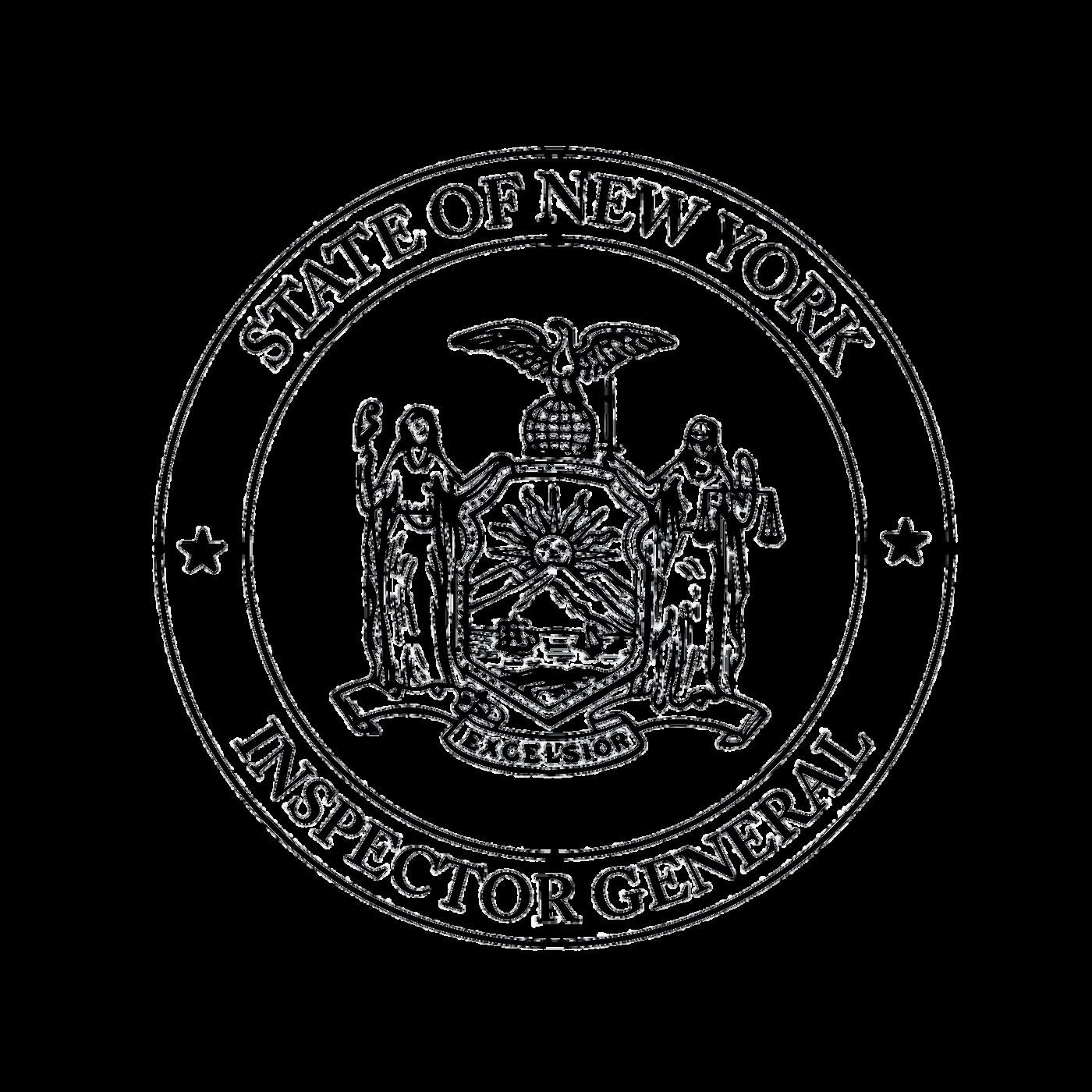
Each public assistance program is designed to address the specific needs of various populations and such assistance may be provided one time or on an ongoing basis. For example:
TEMPORARY ASSISTANCE (TA)
Provides allowances for basic grants, home energy, shelter, and fuel.
HOME ENERGY ASSISTANCE PROGRAM (HEAP)
SUPPLEMENTAL NUTRITION ASSISTANCE PROGRAM (SNAP)
SUPPLEMENTAL SECURITY INCOME (SSI)
MEDICAID
Assists with the cost of home heating.
Administered by the United States Department of Agriculture (USDA) Food and Nutrition Service and provides nutrition assistance.
Provides monthly payments to low-income people who are age 65 or older, blind or disabled.
Provides medical coverage to people who are unable to afford medical care or who are disabled.
Eligible recipients receive SNAP and cash benefits by Electronic Benefit Transfer (EBT). The EBT card acts as a debit card, whereby the recipient swipes the card when making a purchase and the benefits are automatically deducted from the recipient’s account.
In New York State, local social services districts administer publicly funded social service and cash assistance programs. These programs are overseen by the New York State Office of Temporary and Disability Assistance (OTDA), which works with each social services district and is a close partner with OWIG. Local social services districts also work under the supervision of the New York State Office of Children and Family Services (OCFS) for their daycare, child protective services, and other programs specifically for children. OWIG is available to conduct and assist with investigations involving OCFS programs.


In addition to the social services programs, Executive Law §74 also empowers OWIG to review actions by contractees (i.e., vendors doing business with the State and social services districts) and employees. OWIG’s jurisdiction over all participants in the social services arena gives OWIG a comprehensive opportunity to ensure integrity in the State’s social services programs.
OWIG is supervised by an Attorney-in-Charge and a Managing Investigator.
In August 2024, Inspector General Lang appointed Andrew Weiss Attorney-in-Charge for TKTKT
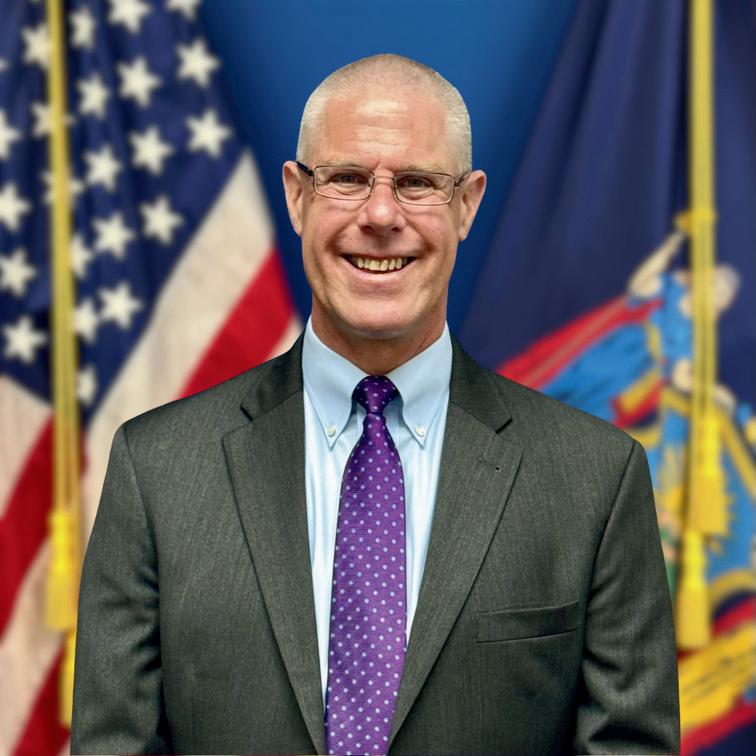
Andrew Weiss Attorney-in-Charge Welfare Fraud
Welfare Fraud. Weiss is a former prosecutor who has spent most of his career investigating and prosecuting fraud in government programs. He has extensive experience in white-collar investigations, having previously served as Deputy Bureau Chief of the Economic Crimes Bureau at the Nassau County District Attorney’s Office and Special Assistant United States Attorney in the Eastern District of New York. Weiss has also held leadership roles in multiple investigative agencies, including the New York City Department of Investigation and the New York State Office of the Welfare Inspector General, where he supervised teams of TKTK investigators, auditors, and attorneys. Weiss currently leads OWIG’s efforts in combating welfare fraud and ensuring that social services resources are used properly and efficiently.
Managing Investigator Jason Fazio brings extensive experience in fraud detection and law enforcement enforcement collaboration to his role leading OWIG investigations. Since joining the office in 2013, he has led complex investigations into fraudulent activities within state welfare programs, and has worked closely with local, state, and federal law enforcement agencies to prevent and investigate public assistance fraud. Before joining OWIG, Fazio worked as an investigator for a local social services district, where he specialized in uncovering largescale fraud schemes within public assistance programs, including Medicaid. His expertise in investigative techniques, strategic planning, and community partnerships has been instrumental in strengthening OWIG’s fraud prevention efforts.

Jason Fazio Managing Investigator Welfare Fraud
OWIG recognizes that interagency cooperation is critical to achieving successful investigations and promoting program integrity. OWIG is deeply grateful for the relationships that exist with local, state and federal partners, and will continue to develop relationships with new agencies. For example, OWIG’s Managing Investigator is a member of the United States Department of Justice’s COVID-19 Fraud Enforcement Task Force (CFETF).





On May 17, 2021, the United States Attorney General established the COVID-19 Fraud Enforcement Task Force (CFETF) to harness the resources of the Department of Justice (DOJ) in partnership with agencies across government to enhance efforts to combat pandemic-related fraud. As a CFETF member, Managing Investigator Fazio is working with the United States Attorney’s Office for the Northern District of New York, United States Department of Labor Office of Inspector General (DOL OIG), Homeland Security Investigations (HSI), United States Postal Inspection Service (USPIS), and United States Postal Service Office of Inspector General (USPS OIG) to share investigative techniques, exchange best practices, and pool resources for uncovering fraudulent schemes. These relationships are critical to OWIG’s success.
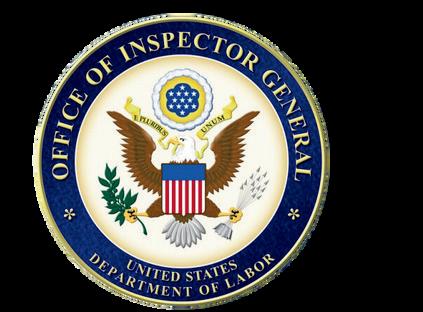
In October 2024, Welfare Inspector General Lucy Lang met with U.S. Department of Labor Inspector General Larry Turner and DOL OIG leadership in Washington, DC, to discuss our agencies’ partnership for combatting pandemic-related and unemployment insurance fraud and our mutual commitment to independent oversight. Notably, under IG Turner’s leadership, DOL OIG investigations have identified close to $47 billion in potential UI fraud and resulted in over 2,000 people being charged with pandemic-related crimes since the pandemic began in March 2020.

One of the ways that OWIG works with other agencies is by offering information and assistance. During 2024, OWIG partnered with the New York Welfare Fraud Investigators Association (NYWFIA) and gave presentations across the State to hundreds of NYWFIA members about OWIG’s resources and how OWIG can assist local DSS fraud units with their investigations. As a result, OWIG received requests for assistance from several counties and provided support to local fraud investigators.
Requests for assistance from other agencies come in all forms. For example, a county DSS contacted OWIG seeking assistance in the creation of an internal fraud unit for a group of newly-assigned investigators. OWIG facilitated a meeting with the DSS staff, local law enforcement, and the local district attorney’s office where ideas and best practices were shared, and gave the new DSS investigators guidance about where to begin.
OWIG intends to continue to build on 2024’s outreach by speaking at conferences for fraud investigators, local DSS commissioners, and other entities involved with identifying and preventing welfare fraud. OWIG will also meet with individual DSS commissioners to discuss local issues and find ways that OWIG can assist. This local approach ensures that OWIG understands the issues “on the front line” so that OWIG can offer assistance and make policy recommendations that are meaningful and realistic.
Training is another critical component of OWIG’s efforts to carry out its mandate of promoting program integrity. To this end, OWIG’s Attorney-in-Charge is an instructor at the New York State Welfare Fraud Training Institute (WFIT) put on by the New York State Office of Temporary and Disability Assistance and the State University of New York Professional Development Program. The WFIT is a weeklong course for new local DSS welfare fraud investigators. The program provides an overview of New York’s various welfare programs and focuses on the legal issues related to investigating a welfare fraud complaint. OWIG’s Attorney-in-Charge teaches the units dealing with relevant criminal and social services law, Constitutional issues, identifying and obtaining legally admissible evidence, packaging the case for prosecution, and the investigator’s role in a criminal prosecution. Teaching at WFIT has the added benefit of giving OWIG statewide exposure because the students at WFIT come from DSS districts all over New York State.
OWIG’s Attorney-in-Charge has also prioritized training OIG staff on OWIG’s mission and jurisdiction as well as important investigative resources and techniques unique to welfare fraud cases. This training and the presentation of case studies have increased the OIG personnel available to assist with the investigation of welfare-related complaints.

In 2024, OWIG received allegations of fraud, abuse, and mismanagement within the social services system from nearly every social services district. During 2024, OWIG received 207 complaints alleging fraud—the stealing of public assistance benefits by an individual—against New York’s social services programs. Some of the fraud schemes that were alleged include:
Receiving benefits for a deceased family member
Concealed income
Concealed receipt of monies from a lawsuit settlement
Receiving benefits for someone not living in the household
Concealing that a recipient lives outside New York State
OWIG’s investigations of these fraud allegations resulted in the arrest and criminal prosecution of nine people, six of whom subsequently pled guilty, one of whom was convicted after trial, and the sentencing of four people. Prosecutions of OWIG cases in 2024 resulted in almost $600,000 in court-ordered restitution including $140,528 of stolen public assistance funds, $72,459 in federal benefits stolen from the U.S. Social Security Administration, and $381,815 of unemployment insurance benefits.
OWIG receives complaints from various sources including:
Each complaint is evaluated by OIG’s Case Management Unit, executive staff, and senior management. Following this analysis, a case may be opened for a full investigation into the allegations, assigned for preliminary investigation to flesh out facts, referred to a local DSS or agency for further action, or closed when the matters alleged are outside OWIG’s jurisdiction.
Complaints that are determined to require a preliminary investigation are assigned to an investigator who initially analyzes the reported information against records of the Welfare Management System, a computerized database operated and maintained by OTDA that contains a complete benefits history for each applicant or recipient. The investigator may also speak with the complainant to get more detailed information or review other relevant records. This preliminary investigation may find that a complaint is not credible. For example, a preliminary investigation may find that the subject of a complaint is not receiving public assistance benefits at all. The preliminary investigation may also result in the opening of a full investigation or the referral of matters to a local DSS or other agencies. For these referred matters, OWIG remains involved with the investigation by reviewing progress reports from the local DSS or agency and providing resources such as staff and investigatory equipment.
When a full investigation is opened, OWIG takes a multidisciplinary approach, assigning an attorney, investigator, and auditor to work on the case. Based on the allegation, this team will devise an investigative plan unique to each case and designed to elucidate the case facts. The investigative plan may require witness interviews, obtaining and reviewing financial records, surveillance and reviewing surveillance footage, or other investigative steps to uncover relevant information. Once all relevant information is reviewed, the team will determine whether there is evidence of wrongdoing and if the investigative findings should be referred to a district attorney for criminal prosecution, referred to a local DSS for administrative action, or if other appropriate action should be taken. OWIG remains involved with criminal referrals by offering additional resources and support to all aspects of the prosecution, including at hearings, trials, and during appeals. OWIG also encourages its prosecutorial partners to seek full restitution for any fraud. If it is determined that improper benefit payments have been received, funds may also be recovered through civil recoupment by the local DSS.
Also among the complaints received by OWIG are requests for assistance. During 2024, OWIG received 783 requests for assistance. These requests covered a wide variety of issues including seeking assistance with working with the local social services office, concerns about a DSS’s handling of child welfare matters, and receiving welfare benefits in a timely manner. Some such requests can be resolved at the preliminary stage, such as assisting a local TKTK DSS with obtaining investigatory information from State agencies. For example, OWIG received a request for assistance from a DSS investigator who was trying to determine whether a welfare applicant had received lottery winnings. This information is critical in a DSS’s determination of an applicant’s true income and the impact of that income on their welfare benefits. OWIG was able to obtain this information because the OIG has oversight over the New York State Gaming Commission.

Requests for Assistance 783
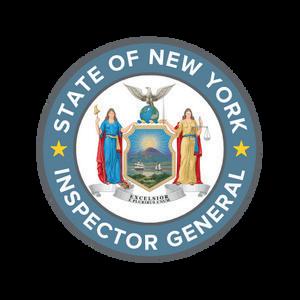


OWIG has partnered with federal and local authorities for several investigations into people who used personal identifying information that was stolen from public assistance recipients to file fraudulent unemployment benefits claims. As a result, five people were charged in 2024 with various federal crimes including Wire Fraud and Aggravated Identity Theft. In a particularly egregious scheme, two defendants were indicted in September 2024 for using the stolen identities of three public assistance recipients to receive over $250,000 in stolen benefits. Their cases are still pending.



These cases are being prosecuted by the Office of the U.S. Attorney for the Northern District of New York and the Schenectady County District Attorney’s Office.

According to the Pandemic Response Accountability Committee, during the COVID-19 Pandemic, the Federal Trade Commission (FTC) reported a nearly 2,920% increase in identity theft reports related to government documents or benefits fraud in 2020.7

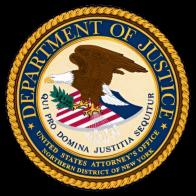

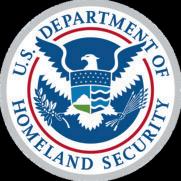

In September 2024, a Queens County couple stole more than $380,000 in pandemic unemployment benefits after an investigation revealed the couple used the identities of at least 20 innocent New Yorkers to submit fraudulent unemployment insurance claims. The couple was ordered to pay full restitution. Additionally, the male defendant was sentenced to 36 months and the female defendant was sentenced to 12 months in prison.
This case was investigated in partnership with the United States Department of Labor Office of Inspector General, Homeland Security Investigations, and the United States Postal Inspection Service, and was prosecuted by the Office of the United States Attorney for the Northern District of New York.


In October 2024, a Schenectady County woman pled guilty to Criminal Possession of Stolen Property for her part in an identity theft ring that targeted public assistance recipients. The members of the ring stole approximately $62,000 after applying for unemployment benefits using stolen identities. The woman was previously arrested in November 2023, and her sentence is pending.
This case is being prosecuted by the Schenectady County District Attorney’s Office.

Following an investigation by OWIG and the U.S. Social Security Administration Office of the Inspector General (SSA OIG), on November 12, 2024, an Erie County man was charged with Welfare Fraud in the Fifth Degree and Attempted Grand Larceny in the Fourth Degree, and pled guilty to these charges at his arraignment. He was sentenced on January 21, 2025, and agreed to repay over $82,000 in restitution: $72,459 to the Social Security Administration and $9,707 to the Erie County DSS.
After receiving an allegation that the man owned and operated a home improvement business, OWIG and the SSA OIG conducted a joint investigation, which included reviewing his public benefits, his bank records, interviewing his customers, and conducting surveillance, among other investigatory actions. The man’s public benefits records revealed that he had collected social security disability benefits between July 2014 and October 2023, and SNAP benefits (i.e., food stamps) between March 2018 and February 2022, based on his claims that he lived alone, had no income, and was disabled.
The investigation found that despite his claims, the man was, in fact, working as a contractor for a business that he owned and earning income from this business. When confronted by investigators, and after initially denying his employment, the man admitted to the scheme.
This case was prosecuted by the Erie County District Attorney’s Office.

On March 28, 2024, an Erie County woman was charged with concealing from the Erie County DSS income she had earned between October 2018 and February 2020 while working as a driver for Lyft car service, as well as her husband’s income. Her concealment caused the Erie County DSS to issue to her $6,406 in public assistance benefits to which she was not entitled.
After a two-day trial during which an OWIG investigator testified about the evidence uncovered during its investigation, the woman was convicted of Welfare Fraud in the Third Degree and Grand Larceny in the Third Degree, both felonies.
This case was prosecuted by the Erie County District Attorney’s Office.


In July 2024, a Richmond County woman was sentenced to repay $22,513 in SNAP benefits that she stole from the HRA. The defendant failed to disclose to the HRA that she owned a beauty salon and was collecting unemployment benefits in New York and Pennsylvania at the same time. She previously pled guilty in 2023 to Attempted Falsifying Business Records in the First Degree.
This case was prosecuted by the Richmond County District Attorney’s Office.



On November 21, 2024, a Richmond County woman was arrested and pled guilty to Welfare Fraud in the Fifth Degree. She subsequently signed a confession of judgment, requiring her to pay $61,656.22 in restitution for her theft of public benefits administered through the New York City Human Resources Administration (HRA).
An investigation by the SSA OIG found that the woman had collected social security benefits on behalf of her uncle, who had passed away in 2019, until she was caught in 2023. The woman was prosecuted for this theft of $48,435.27 from the U.S. Social Security Administration. The SSA OIG investigation also revealed that the woman had never reported her receipt of the social security income to HRA as part of her welfare case. After HRA calculated the amount of overpayment wrongfully received by the woman due to her misrepresentations, OWIG referred this matter for criminal prosecution.
This case was prosecuted by the Richmond County District Attorney’s Office.



On January 9, 2024, a Westchester County woman was arrested and charged with Welfare Fraud in the Third Degree, Grand Larceny in the Third Degree, and two counts of Offering a False Instrument for Filing in the First Degree, all felonies. She pled guilty to Welfare Fraud in the Fifth Degree on August 5, 2024, and was sentenced on October 28, 2024, to a conditional discharge after paying full restitution of $33,641.
OWIG’s investigation found that between 2013 and 2021, the woman submitted annual applications to the Westchester County DSS and, based on her representations in these applications, received SNAP benefits. On the applications, the woman claimed to live with her children, brother, and mother, and to have received minimal income from a part-time job, along with $200 each week from the father of her children for child support. However, OWIG’s investigation found that the woman was married to and lived with the father of her children, and he was employed as a police officer. As a result of concealing her husband’s presence in the household and his income, she stole $33,641.
This case was prosecuted by the Westchester County District Attorney’s Office.

In November 2024, an Erie County man was sentenced to serve 37 months in prison, after being convicted of federal charges of Conspiracy to Commit Wire Fraud and Filing a False Tax Return. The defendant operated an illegal debt collection business between January 2015 and December 2016, which collected approximately $3,061,205 from victims. In addition, the defendant lied in an application to the Erie County DSS, by concealing his income from the illegal debt collection business, in order to obtain benefits for himself and his children. As part of the plea, the defendant will pay $13,011 to the Erie County DSS.
This case was prosecuted by the Office of the United States Attorney for the Western District of New York.
The OWIG 2024 Annual Report documents the work that OWIG did to carry out its mandates to (1) investigate and prosecute fraud that is committed within the State and local social services districts; (2) offer training and policy recommendations to improve program integrity; and (3) assist local social services districts. Since OWIG was created in 1992, the Office has successfully carried out these mandates and will continue to do so in the coming year and beyond.
1
There are 58 social services districts in New York State. The five counties of New York City comprise one district, and the remaining 57 counties of New York State each correspond to a social services district.
2 New York State Office of Temporary and Disability Assistance, Temporary Assistance Source Book, Chapter 2, Section B, Family Assistance, and Section D, Safety Net Assistance (June 27, 2016), http://otda.ny.gov/programs/temporaryassistance/TASB.pdf.
3 Office of Temporary and Disability Assistance Home, Programs, Home Energy Assistance Program (HEAP), https://otda.ny.gov/programs/heap/
4 https://www.fns.usda.gov/snap/supplemental-nutrition-assistance-program.
5 Social Security Administration Supplemental Security Income Booklet, November 2024, https://www.health.ny.https://www.ssa.gov/pubs/EN-05-11000.pdf.
6 https://www.health.ny.gov/health_care/medicaid/.
7 Key Insights: Identity Fraud Reduction and Redress in Pandemic Response Programs, The Pandemic Response Accountability Committee (June 13, 2022), https://www.pandemicoversight.gov/media/file/identity-fraud-capping-report.
8 Identity Theft Awareness Week starts today, Seena Gressin, Federal Trade Commission (February 1, 2021), https://www.ftc.gov/business-guidance/blog/2021/ 02/identity-theft-awareness-week-starts-today
